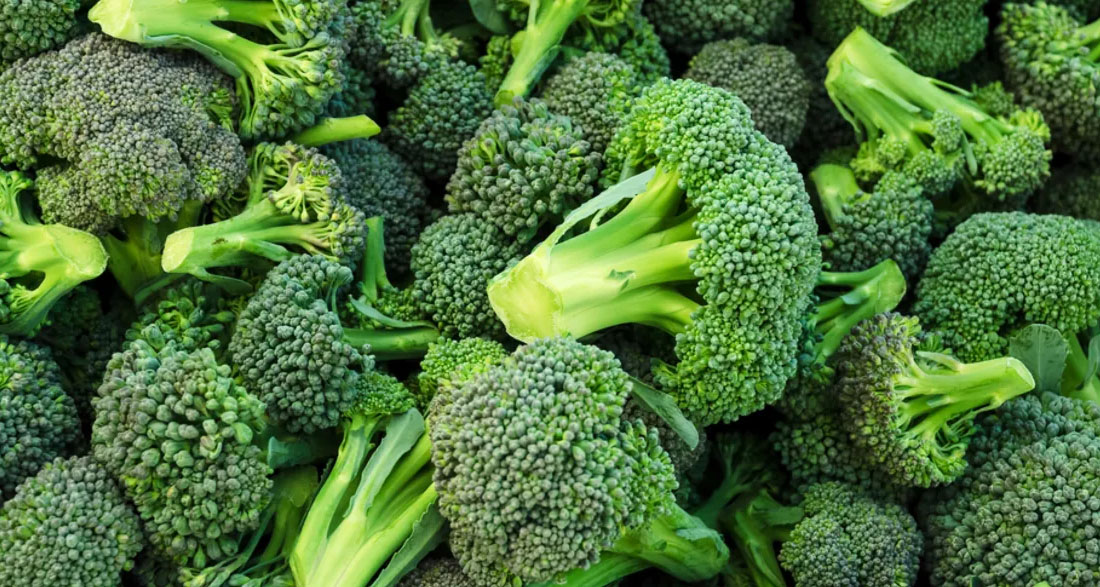A serious recall has been issued for a vegetable product sold at Walmart stores across several states. If you’ve purchased Marketside Broccoli Florets recently, you need to pay attention. The product has been found to have a dangerous bacterial contamination, and health officials are urging everyone who bought it to dispose of it immediately.
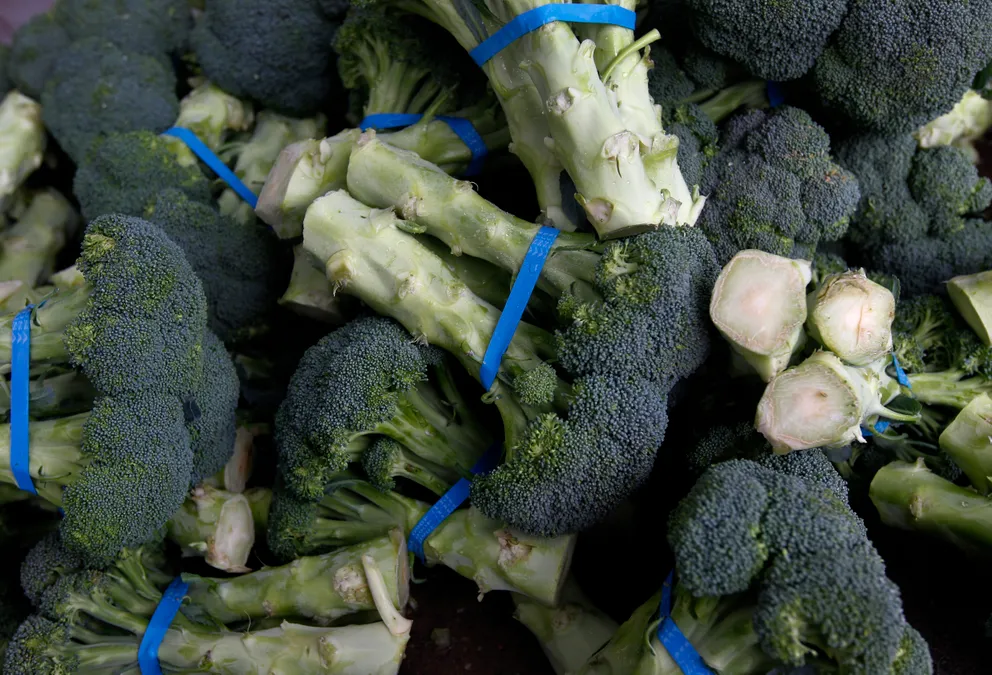
On December 27, 2024, the U.S. Food and Drug Administration (FDA) announced a Class I recall for the 12 oz. packages of Marketside Broccoli Florets after tests showed potential contamination with Listeria monocytogenes, a dangerous bacteria.
This bacteria can cause serious infections, especially for young children, older adults, pregnant women, and people with weakened immune systems. It can lead to severe symptoms, such as fever, headache, stomach pain, diarrhea, and nausea. In some cases, it can even cause miscarriages or stillbirths.
This recall involves a total of 5,918 cases of broccoli, with the affected packages marked “BEST IF USED BY DEC 10 2024” and the code BFFG327A6 13:56. The issue was discovered when Texas Health & Human Services conducted random tests at a Walmart store in Texas. One of the samples tested positive for Listeria monocytogenes, and health officials took immediate action.
🚨RECALL ALERT🚨: A recall over Walmart-sold broccoli has been escalated to the highest threat levelhttps://t.co/DtreuuMwSF
— PIX11 News (@PIX11News) February 3, 2025
“Although no illnesses have been reported, we must remain vigilant,” said a spokesperson from the FDA. “Consumers who bought this product should not consume it and should either throw it away or return it to the store.” The FDA also explained that a Class I recall is the most serious type, meaning there’s a high chance that the contaminated product could lead to serious health problems or even death.
Walmart stores in 20 states received the recalled broccoli florets, including locations in places like Alaska, Arizona, California, Colorado, Illinois, Michigan, Ohio, Texas, Washington, and Wyoming. If you bought this broccoli in one of these states, be sure to check your package and make sure it matches the recall information. The affected product was sold in Walmart stores nationwide, so if you think you might have it at home, it’s better to be safe and return it.
“Consumers should act quickly,” the FDA continued. “If you have this broccoli at home, it should not be eaten.” Stores have been notified and instructed to pull the product from shelves, and consumers are urged to return the product for a refund or discard it. Braga Fresh Foods LLC, the company behind the product, has communicated with retailers via email, phone, press releases, and even in-person visits to ensure the recall is being handled swiftly.
OUTBREAK: Investigation of E. coli O121:H9 in bagged organic whole & baby #carrots from Grimmway Farms. The voluntary recall is of multiple sizes & brands. Products are likely no longer available for sale in stores – check your refrigerator. Full list> https://t.co/4hPELJXa7d
— U.S. FDA Human Foods Program (@FDAfood) November 18, 2024
The recall remains ongoing, and the FDA is closely monitoring the situation as more tests are done. While there haven’t been any reports of illnesses yet, health officials are not taking any chances.
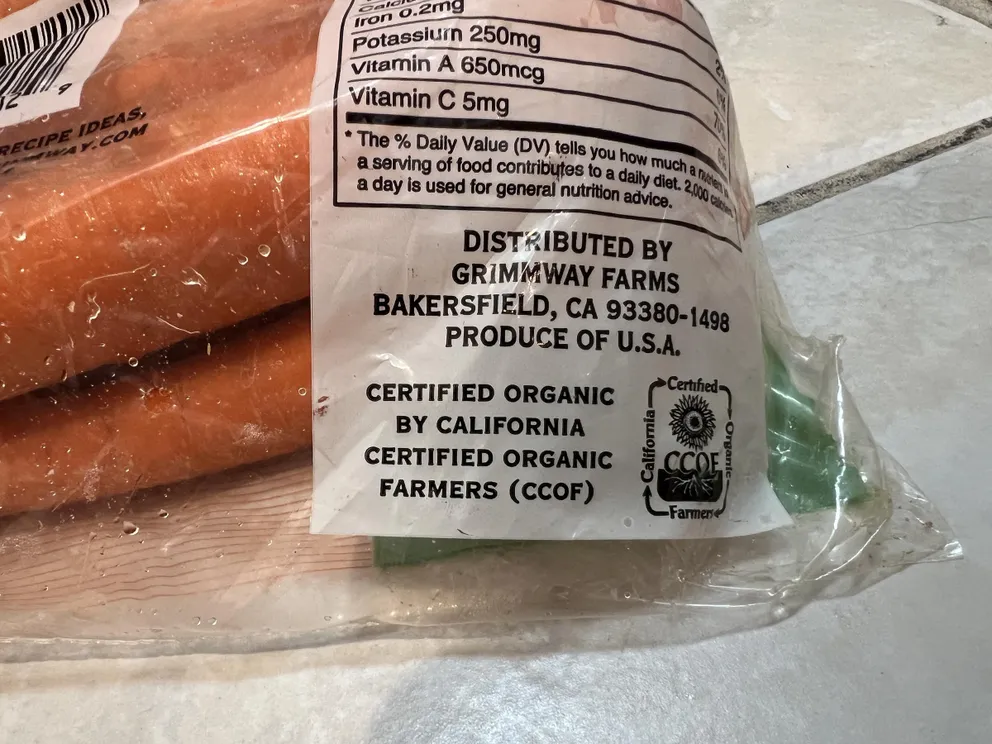
The bacteria Listeria monocytogenes can cause severe health problems, especially for pregnant women, older adults, and individuals with weakened immune systems.
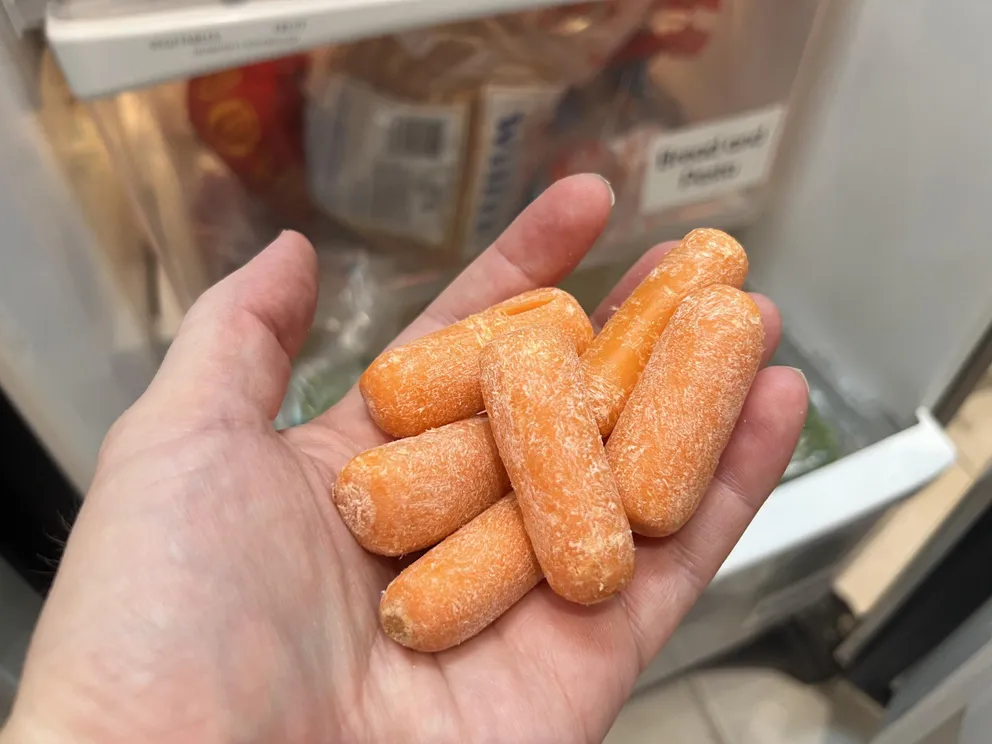
But the broccoli recall isn’t the only food safety scare right now. Another serious recall has been issued for organic carrots after an outbreak of E. coli. On November 17, 2024, the CDC and FDA alerted the public to a new outbreak of E. coli linked to organic carrots sold across the U.S.
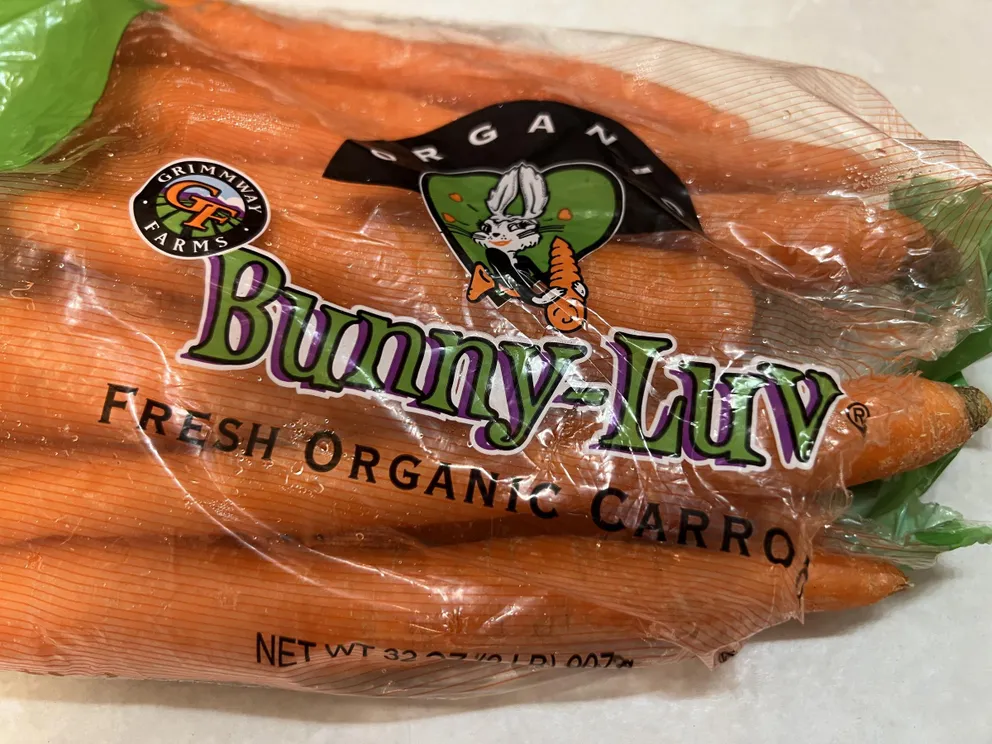
The affected carrots came from Grimmway Farms and included both organic whole carrots and baby carrots.
The recall covers multiple brands of organic carrots, including well-known names like 365, Bunny Luv, Cal-Organic, Compliments, Full Circle, Good & Gather, GreenWise, and Marketside.
Grimmway Farms Recalls Organic Whole and Select Organic Baby Carrots That May Be in Consumers’ Homes Due to Potential E. coli Contamination https://t.co/kcnABGhfpD pic.twitter.com/vTGSI0z6Cd
— U.S. FDA Recalls (@FDArecalls) November 18, 2024
Even though Grimmway Farms issued a recall for these products on November 16, 2024, the CDC warned that some of the recalled carrots might still be in consumers’ homes. The company pulled the products from store shelves, but they could still be lurking in your fridge.
E. Coli Outbreak: 39 people are sick in 18 states. Check your homes for recalled bagged organic carrots. Do not eat recalled carrots. Throw them away. Carrots currently on store shelves are not affected. See the notice for a full list of brands of carrots.https://t.co/lzD2Z1SEAw pic.twitter.com/dL4KpqmZr1
— CDC (@CDCgov) November 17, 2024
The E. coli outbreak has affected 18 states, causing 39 reported illnesses, 15 hospitalizations, and, tragically, one death. Interviews with 27 people who got sick showed that nearly all of them (26 out of 27) had eaten the recalled carrots in the week before they got ill.
An E. coli outbreak tied to organic whole and baby carrots from Grimmway Farms has affected 39 people across 18 states, resulting in 15 hospitalizations and one death, according to the CDC.
— ABC News (@ABC) November 19, 2024
Read more: https://t.co/BuXUEfmgdc pic.twitter.com/fqwq5t3ayk
The CDC is working to track the spread of the outbreak and ensure people stay informed. Some of the states with the highest numbers of cases include Minnesota, New York, and Washington.
A deadly E. coli outbreak has been linked to organic carrot from Grimmway Farms, sold at many major chains.
— ABC News Live (@ABCNewsLive) November 18, 2024
“Throw them away immediately,” @ErielleReshef warns.
"Sanitize any surfaces they may have touched." pic.twitter.com/ZpbZclr8qV
E. coli infections can lead to serious health problems, including kidney failure, which may require hospitalization. The bacteria can cause severe stomach cramps, diarrhea (which can be bloody), fever, nausea, and vomiting. These symptoms typically show up about three to four days after eating contaminated food, and while most people recover within five to seven days, some might experience long-lasting kidney problems.
⚠️ OUTBREAK: Investigation of E. coli O121:H9 in bagged organic whole & baby #carrots from Grimmway Farms. The voluntary recall is of multiple sizes & brands. Products are likely no longer available for sale in stores – check your refrigerator. Full list> https://t.co/4hPELJWChF pic.twitter.com/Xv1JivF611
— U.S. FDA Human Foods Program (@FDAfood) November 18, 2024
“The strain of E. coli involved in this outbreak is a particularly dangerous one,” said a CDC spokesperson. “It’s called E. coli O121:H19, and it produces a toxin that can cause severe illness, especially in vulnerable populations like the elderly and young children.”
The CDC also stressed the importance of safe food handling practices. “We encourage everyone to wash their hands thoroughly before, during, and after food preparation,” the spokesperson added. “Keeping your kitchen surfaces clean and sanitizing utensils and cutting boards is key to preventing contamination.”
To stay safe, it’s recommended that people wash fresh fruits and vegetables under running water before eating them, even if you plan to peel them. It’s also important to cook meats to the right temperature and use separate cutting boards for raw meats and ready-to-eat foods.
The CDC and FDA are working together to contain both the broccoli and carrot contamination risks, making sure affected products are quickly removed from stores. If you’ve purchased either the recalled broccoli or the contaminated carrots, you should return or throw them away immediately to prevent the risk of illness. As always, staying informed and following food safety practices is the best way to keep yourself and your loved ones safe from foodborne illnesses.
In late 2024, a dangerous health scare spread across the United States, shaking the food industry and sending consumers scrambling to check their fridges. Organic baby carrots and whole carrots from well-known brands were recalled after they were found to be contaminated with a harmful strain of E. coli. The recall affected millions of people in 18 states, causing 39 reported illnesses, 15 hospitalizations, and sadly, one death.
The recalled carrots came from several trusted brands, including Nature’s Promise, O-Organic, President’s Choice, Raley’s, Simple Truth, Sprouts, Trader Joe’s, Wegmans, and Wholesome Pantry.
These carrots had best-if-used-by dates between September 11 and November 12, 2024. Whole organic carrots, although not marked with specific dates, were sold in stores between August 14 and October 23, 2024. These carrots were also affected by the recall, with the same brands being involved.
The CDC confirmed that the outbreak spanned across 18 states, including Arkansas, California, Colorado, Massachusetts, Michigan, Minnesota, Missouri, North Carolina, New Jersey, New York, Ohio, Oregon, Pennsylvania, South Carolina, Texas, Virginia, Washington, and Wyoming. It was a nationwide scare, and the number of affected states only added to the urgency of the situation.
Health experts interviewed 27 people who had fallen ill, and 26 of them (96%) had eaten carrots within the week before getting sick. This solidified the link between the recalled carrots and the E. coli outbreak. Health officials even mapped the outbreak, showing that states like Minnesota, New York, and Washington had the highest number of cases. Other states, such as Wyoming, California, and Texas, had a more scattered spread of infections.
The culprit behind this outbreak was a dangerous strain of E. coli called Shiga toxin-producing Escherichia coli O121:H19. This specific strain can lead to severe and sometimes life-threatening infections, especially for vulnerable populations, such as young children, the elderly, and those with weakened immune systems.
For those infected, symptoms typically appear three to four days after exposure, and they include intense stomach cramps, bloody diarrhea, fever, nausea, and vomiting. In severe cases, E. coli can cause complications like hemolytic uremic syndrome (HUS), a condition that can lead to kidney failure and even death. While most people recover within five to seven days without treatment, some may develop serious kidney issues that require hospitalization.
The CDC has strongly urged anyone experiencing symptoms such as dehydration, persistent diarrhea, or a fever over 102°F to seek medical care immediately. E. coli infections can be particularly dangerous and require timely medical attention to prevent further complications.
E. coli is a type of bacteria that lives in the intestines of people and animals and can also be found in food and water. While most strains of E. coli are harmless, some can cause severe illness. Infection happens when people consume contaminated food or water or come into contact with infected animals or people.
Vulnerable groups like older adults and international travelers are at a higher risk of infection, which is why it’s crucial for everyone to be extra cautious, especially during outbreaks like this.
The CDC has offered several prevention tips to reduce the risk of E. coli infection. One of the most important steps is frequent handwashing. The CDC recommends washing hands for at least 20 seconds with soap and water, especially before, during, and after food preparation. You should also wash hands after handling raw meat, poultry, or eggs to prevent cross-contamination.
It’s also essential to clean kitchen surfaces, utensils, and cutting boards thoroughly with hot, soapy water after each use. Fresh fruits and vegetables should be rinsed under running water before eating. To avoid contamination, keep raw meat, poultry, seafood, and eggs separate from other foods, and use separate cutting boards for raw and ready-to-eat items. The CDC also advises against washing raw chicken, as it can spread bacteria to kitchen surfaces.
When it comes to cooking, the CDC stresses the importance of using a food thermometer to ensure that food is cooked to the right internal temperature. For example, whole cuts of meat should reach 145°F, ground meats should be cooked to 160°F, and poultry and leftovers should reach 165°F. By cooking food to the correct temperature, harmful bacteria like E. coli are killed, making the food safe to eat.
Proper refrigeration is also vital to prevent bacteria from growing. Perishable foods should be refrigerated within two hours of purchase or preparation, or within one hour if the temperature exceeds 90°F. The refrigerator should be kept at 40°F or lower to inhibit bacterial growth.
When traveling, hiking, or camping, make sure your drinking water is treated to avoid contamination. The CDC also advises against swallowing water while swimming in lakes, ponds, or pools, especially if you have diarrhea. Only drink milk, juices, and dairy products that are labeled as pasteurized, as pasteurization kills harmful germs, including E. coli.
By following these steps, individuals can greatly reduce their risk of E. coli infection and other foodborne illnesses. It’s a simple yet effective way to protect yourself, your family, and your community from the potentially dangerous effects of bacteria. With heightened awareness and proper precautions, we can all do our part to stay safe.

